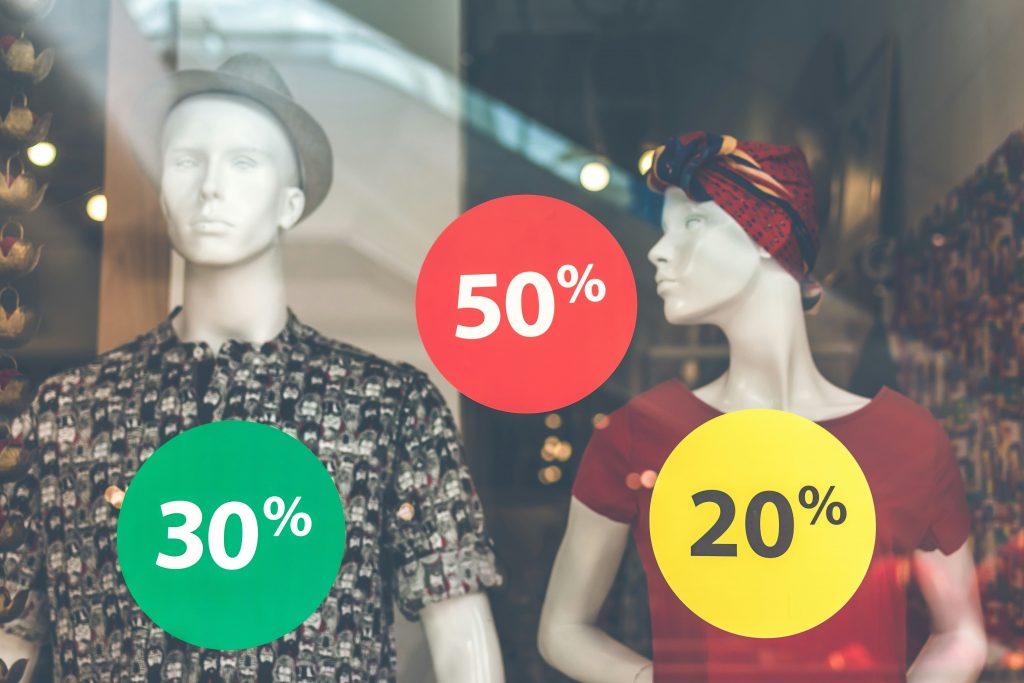What’s included?
- Introduction
- How does shopping affect the brain?
- How companies are keeping shoppers engaged
- Why is it being overlooked?
- How to recognise shopping addiction in family and friends
- How Delamere can help
‘Shopperholic’ is a term often fondly used to describe someone who takes ‘retail therapy’ a step too far.
For many years, this term has often been considered to be harmless and used in jest to label friends and family members for laziness or lacking any self-control.
But this is now a growing problem in the UK.
The rise of gambling techniques being implemented on the websites and apps of popular retailers like Temu has meant that shopping addiction has become a harsh reality for many people, particularly women.

Roughly a quarter of a million people in the UK are expected to be addicted to shopping, with nine in ten of those affected being women and a growing number of young people being impacted by this.
A recent study on compulsive buying among nurses found that low levels of ‘coping attitudes’, along with ease of access to the internet and being single are three key features of those suffering from shopping addiction.
There are many underlying causes of this issue to consider, but first it’s important to explore the psychological impact this type of addiction has on adults.

Call us confidentially at any time to speak to a member of our team.
Call us now: 0330 111 2015
How does shopping affect the brain?
Sites such as Temu and Shein act as digitar sugar for young people.
These websites have been designed to extract time from us and keep us locked in.
Making a purchase can cause a release of endorphins and dopamine in the brain, resulting in momentary pleasure.
This begins a reward cycle, as the individual faces motivation to re-experience the rush.
This urge can begin to outweigh self control in vulnerable individuals.

Neurologist Heidi Moaward MD, surmised that shopping and buying can cause changes in three main areas of the brain.
- The nucleau accumbens is activated when considering the purchase of a desirable item.
- The insula, which is associated with negative emotions, is activated when an item’s price is being considered.
- The mesial prefrontal cortex assesses the pros and cons of making a purchase.
Moaward postulates that ‘smart’ shoppers may experience more activation of the mesial prefrontal cortex, whereas more frugal shoppers may experience higher activation in the insula.
Those who are ‘emotional shoppers’ may experience activation in the nucleau accumbens, meaning that this emotional shopping may be driven by the rush of an over-active biological response.
How companies are keeping shoppers engaged
Retailers have started to employ similar techniques to betting companies to keep users captivated and more likely to buy.
Website additions such as spinning roulette wheels, countdown timers for deals and bright, interactive promotions make it hard to look away.
Astoundingly cheap prices and influencer campaigns to put the products on the screens of young people around the country have contributed to the success of online retailers like Shein and Temu.
A Channel 4 documentary earlier this year exposed some of the dangerous products sold by Temu, but buyers should be aware of their engagement techniques too.
Even much larger companies have started to add gamification to their rewards systems, such as Lacoste’s crocodile hunt game to unlock prizes in the virtual store.
Why is it being overlooked?
As digital addiction has been on the rise for many years now, shopping addiction is often hidden behind this umbrella term.
There has been a lack of recognition of behavioural addictions in the past, and the attitudes towards them are only just beginning to change.
The most recent, 5th Edition of the Diagnostic & Statistical Manual for Mental Disorders (DSM-V) was updated to include ‘process’ or behavioural addictions as previous additions only included substance related disorders.
However, this edition only cites gambling addiction, demonstrating there is a way to go.
How to recognise shopping addiction in family and friends
Symptoms are similar to those associated with substance addiction without the evident physical signs and symptoms, but can be characterised by the following:
- An excessive amount of time thinking about shopping, or actually shopping
- A euphoric high after shopping
- Impulsive shopping
- Using shopping to manage emotions and feelings
- Guilt and remorse surrounding the topic of shopping
- Financial difficulties as a result of shopping
- Social isolation
How Delamere can help
Behavioural addictions rarely come in isolation, and those who struggle with them may switch from one to another.
Eating disorders and other mental health issues such as obsessive compulsive disorder can often be linked to behavioural addictions.

Delamere’s holistic approach will help guests to understand the primary cause of the behavioural addiction, and provide them with the tools to live beyond addiction. The team of experts at Delamere provide an individualised approach to recovery, and create a safe and supportive environment throughout the Stop, Start, Grow, Bloom programme.

Call us confidentially at any time to speak to a member of our team.
Call us now: 0330 111 2015








